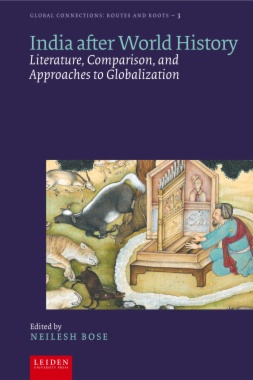"In the twenty-first century, terms such as globalization, global, and world function as key words at the cusp of new frontiers in both historical writing and literary criticism. Practitioners of these disciplines may appear to be long time intimate lovers when seen from pre and early modern time periods, only to divorce with the coming of Anglophone world history in the twenty-first century. In recent years, works such as Martin Puchner’s The Written World, Maya Jasanoff’s The Dawn Watch, or the three novels that encompass Amitav Ghosh’s Ibis Trilogy, have rekindled a variant of history and literature’s embrace in a global register. This book probes recent scholarship concerning reflections on global history and world literature in the wake of these developments, with a primary focus on India as a site of extensive theoretical and empirical advances in both disciplinary locations. Inclusive of reflections on the meeting points of these disciplines as well as original research in areas such as Neo-Platonism in world history, histories of violence, and literary histories exploring indentured labor and capitalist transformation, the book offers reflections on conceptual advances in the study of globalization by placing global history and world literature in conversation.
- Cover
- Table of Contents
- Foreword
- Chapter 1. Introduction: Globalization, Global, and World as Keywords for History and Literature
- Chapter 2. Can we have a global literary history?
- Chapter 3. World History Needs a Better Relationship with Literary History
- Chapter 4. Re-Gifting Theory to Europe: The Romantic Worlds of Nineteenth Century India
- Chapter 5. Violence, Indenture and Capitalist Realism in Amitav Ghosh’s Sea of Poppies
- Chapter 6. Vacant Villages: Policing Riots in Colonial India
- Chapter 7. The Neoplatonic Renaissance from the Thames to the Ganges
- Chapter 8. Radical Presentism
- Chapter 9. Liberating World Literature: Alex La Guma in Exile
- Afterword
- About the Authors
- Index

